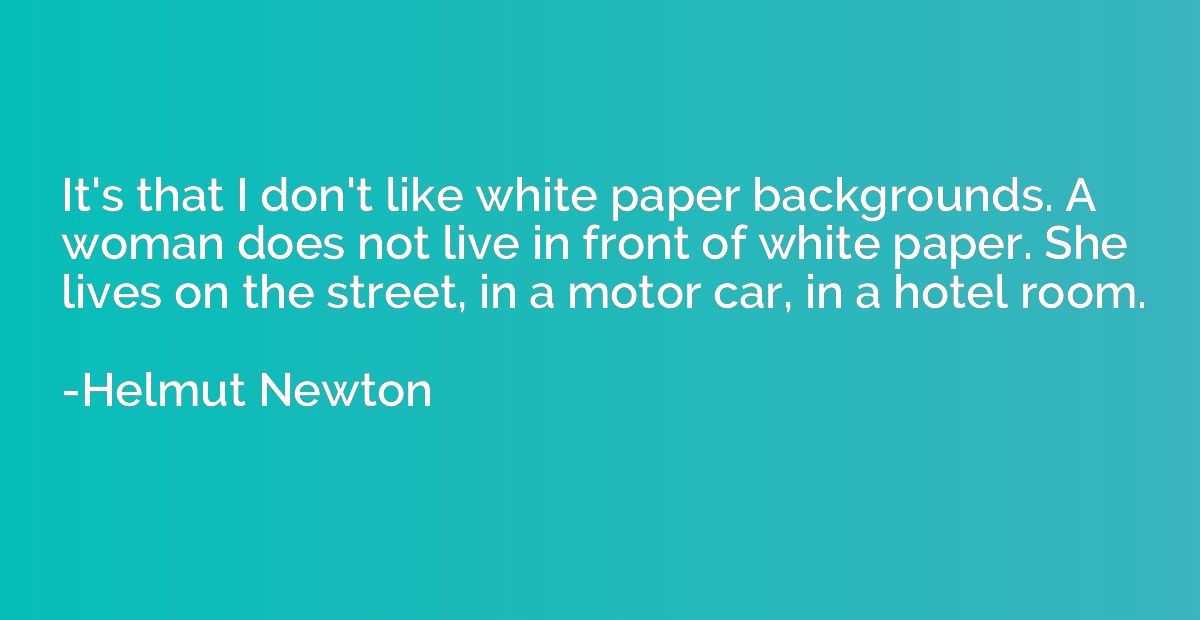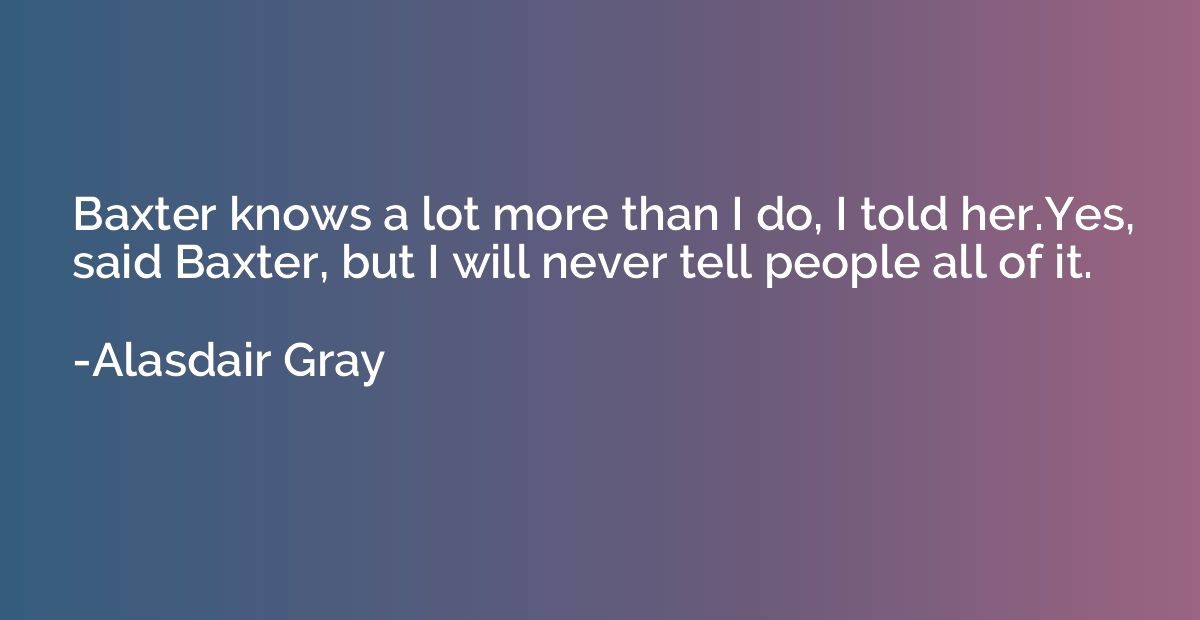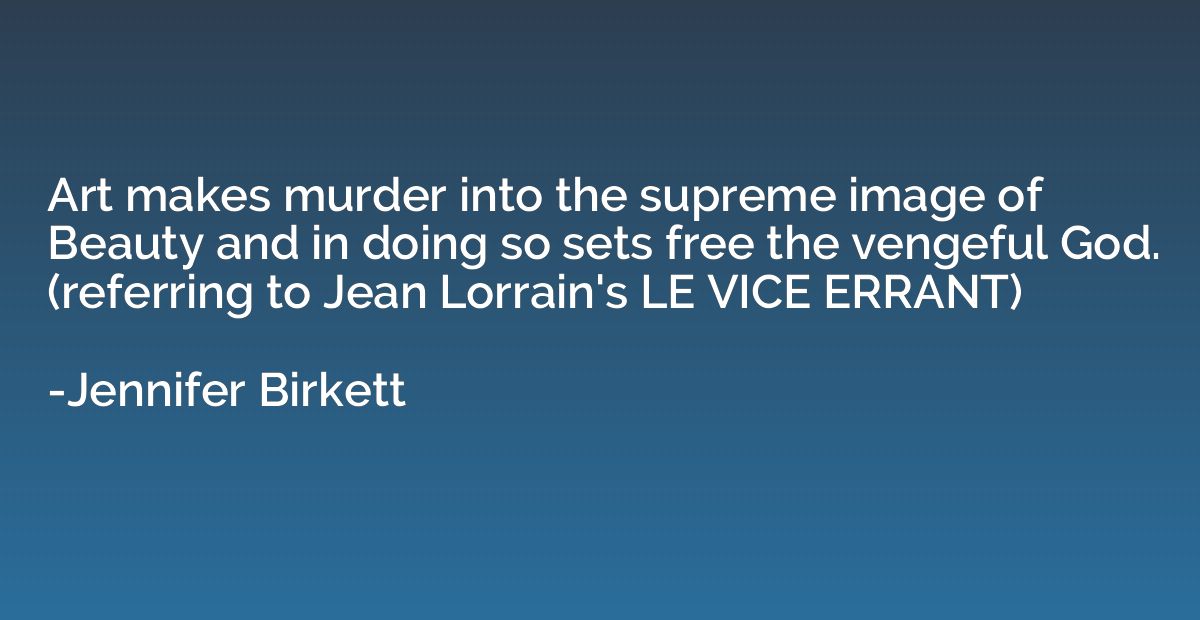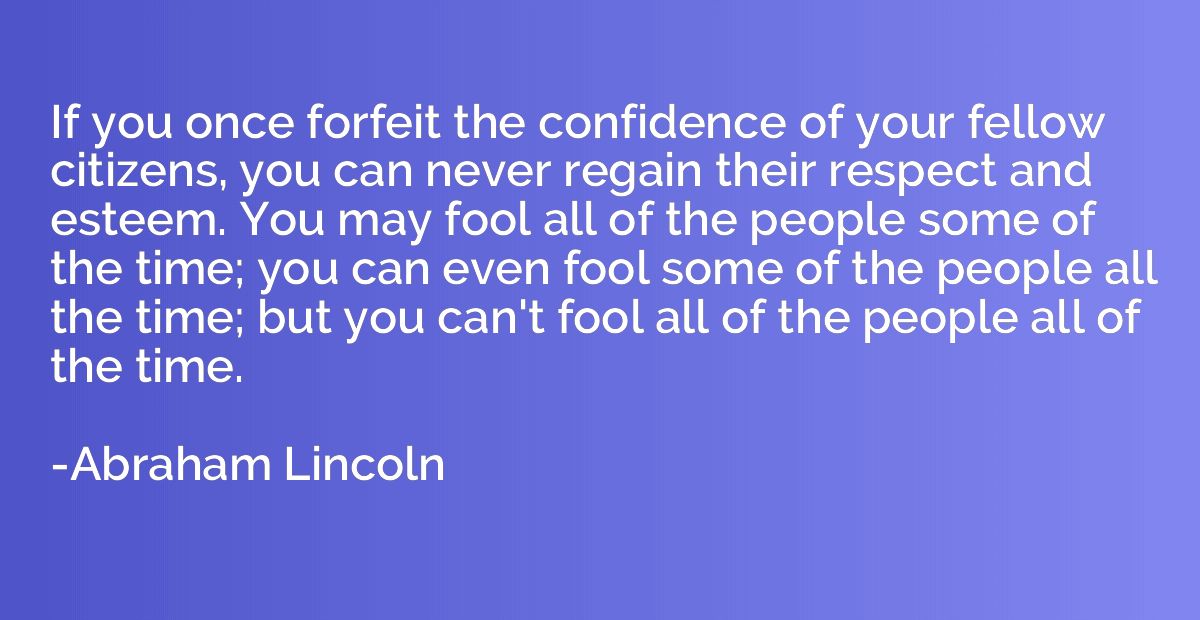Quote by Helmut Newton
It's that I don't like white paper backgrounds. A woman does not live in front of white paper. She lives on the street, in a motor car, in a hotel room.

Summary
This quote reflects the artist's rejection of white paper backgrounds commonly used in art and photography. It conveys the idea that a woman's existence should not be confined to a sterile and artificial setting but should be depicted in realistic settings like the street, a motor car, or a hotel room. By highlighting the importance of contextualizing a woman's life, this quote challenges the notion of idealized environments and seeks to bring forth the raw and dynamic aspects of human existence.














